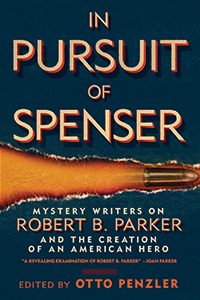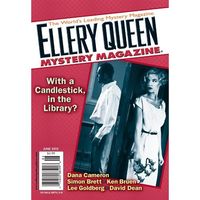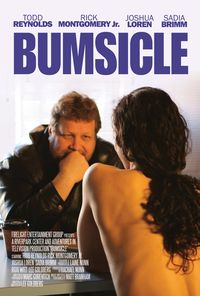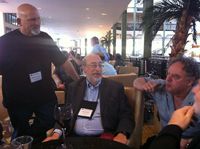….that's what author Boyd Morrison says and his recent experience certainly proves it.
Back when the Kindle was in its early days, Boyd's The Ark was the first, big, self-pubbed bestseller…and was immediately snapped up in by Simon & Schuster in a major, multi-book deal.
At the time, there were many bitter writers in the so called "indie" community who lambasted him for selling out. The anger was stupid, of course, based more on jealousy than anything else. I argued at the time that Boyd was in a win-win situation…in the best of all possible worlds, he'd become a bestselling author worldwide with big publishers behind him, reaching scores of readers he could never have reached on his own. In the worst case scenario, he'd bomb, but would still benefit from the exposure and reach readers he hadn't before. And he could go back to self-publishing…but a deal like this might never come again.
Well, as it turns out, Boyd split the difference. He writes that he was just dropped by Simon and Schuster, who rejected his new book The Roswell Conspiracy, so he's self-publishing it…but that his publishers overseas loved the book and are bringing it out in print. The upshot is…win-win:
It might seem like I would become a rabid self-publishing advocate because of my situation, but that's hardly the case. My ultimate goal is to get my books to readers in the best possible way. If that's through a traditional publisher, great. I'm thrilled to be with Little, Brown UK because they do a fantastic job publishing my books, from the editing to the book packaging to the marketing and promotion. I have hardworking publishers around the world, with books being released in the next few months in Israel, Germany, Italy, and Thailand. And I'm even still published traditionally in the U.S.: Simon and Schuster will continue to be the publisher of my first four books for the foreseeable future.
But sometimes, as with The Roswell Conspiracy in the U.S., self-publishing is the best (and in this case, only) option. I'll take on all the risk, but I'll also reap the rewards if it goes well. That's the amazing thing about what's happened for authors in the last five years. Rejection by publishers no longer has the same power. What could have been a crushing blow in January was actually just a detour sign, and maybe that new path will turn out to be even better than the route I was planning to take.
This story just proves that this is an exciting time to be an author, that we have options we never had before. and that rejection by every publisher in NY can actually be a money-making opportunity.
Meanwhile,author Mark Terry's experience proves that nowadays a book contract isn't always such a good deal after all. He writes that his agent just sent him his latest, quarterly royalty check on two hardcover novels…
the check she received was in the amount of $249.99. She'll take her 15% of this magnificent sum of money and send me the remaining $212.49, give or take. Then I'll automatically take 24% out for the federal government and 4% out for the state government. That'll give me about $153 give or take, to play around with, pay bills, or sob over.
In comparison, in March I received a royalty check (direct deposit, actually) from Amazon (alone) for $1013. That reflects, I believe, either the month of January's ebook sales or December's.
In other words, he probably lost money by being published instead of self-publishing. Until now, I don't think there's ever been a time when accepting a publishing contract rather than self-publishing could be, for some authors, a very costly mistake.
The way I see it, the ebook, self-publishing revolution sparked by Amazon and the Kindle has been hugely beneficial for authors. Of course there are dark sides, but so far, the pluses far outweight the negatives.









![IMG_1121[1] IMG_1121[1]](https://leegoldberg.com/wp-content/uploads/2012/04/6a00d8341c669c53ef0167648f0033970b-200wi.jpg)
![IMG_1130[1] IMG_1130[1]](https://leegoldberg.com/wp-content/uploads/2012/04/6a00d8341c669c53ef0167648f017d970b-200wi.jpg)


